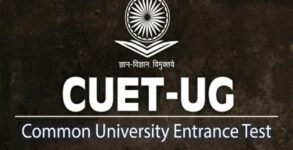JEE Main 2020: This year onward Joint Entrance Examination (JEE) Main 2020 has brought few changes in the examination format. The JEE Main 2020 exam will have five long-form or integer-type questions and the total number of questions has been lessened from 30 to 25.
There will be 20 multiple-choice questions (MCQs) according to the previous year format and the other five questions will be long-form numerical type. The cut-off and accuracy level is expected to be lowered.
Each subject such as mathematics, physics, and chemistry will have an equal number of questions and each carries four marks. For MCQs, one mark will be deducted for each wrong attempt hence, as per the new format of the JEE MAin 2020 exam, there will be no marks deducted for numerical type questions.
For the latest format, let’s talk about what, when, and how to get ready to pass the exam.
JEE Main 2020: Conceptual questions
Ramesh Batlish, head, FIITJEE, suggests and says, “Since integer-type questions used to be part of JEE Advanced, students should have a fair idea of what to expect. One should solve more subjective integer-type questions having a decimal type answer to get a grip on these. Unlike JEE Advanced, the long-form questions in JEE Main are expected to be more direct, but these will be concept-based.”
He further says, “This would prove to be a good move for well-performing students as it would kill the guesswork system and ensure only genuine attempts secure marks. Students can practice the last 10 years of question papers and NCERTs for the exam.”
JEE Main 2020: Cut-off likely to reduce
Akhand Swaroop Pandit, co-founder and CEO of the online learning platform ‘Catalyst’, expects this new format to lower the cut-off and says, “While the numerical-type questions will be simpler as compared to Advanced where multiple concepts are intermixed, it would also not be direct formulae questions. Conceptual knowledge will be judged more through these questions. Candidates need to prepare their basics well. With such questions, the accuracy levels are expected to be lowered and hence the cut-offs can be expected to decline too.”
Subject-wise important topics for the long-form questions in JEE Main 2020 exam:
Physics: Conceptual understanding of questions for JEE Main exam is necessary and topics include are- Mechanics, Newton’s law of motion, Bernoulli’s theorem, elasticity, equation of continuity, kinematics, fluid mechanics, work, energy and power, rigid body dynamics, gravitation, law of conservation of momentum (linear/angular), and magnetism.
Optics and Modern Physics is the most important in Physics which covers 12-16 marks in JEE Main exam. Frequently questions are asked from topics are X-ray, (continuous wavelength, characteristic wavelength), atomic structure (spectrum/radius), radioactivity, dual nature of matter, photoelectric effect, nuclear fission, oscillation and waves topic is also important for conceptual questions related to topics like SHM, sound waves, string, Doppler effect, Wave Optics are surely asked in JEE Main each year. Each year, at least 1-2 questions are covered from Thermodynamics.
Mathematics: Topics such as sequence and series, determinants and matrices, sets and relations, mathematical reasoning, statistics and probability, vector and 3D, straight line, circle, definite and indefinite integral, application of derivatives, differential equation, application of integrals, trigonometric ratios.
Chemistry: Fajan’s Rule and its application, shape and hybridisation are important topics. Topics important from the chapter Molecular Orbital Theory, are Electronic Configuration, dipole moment and the periodic table.
Read also: CDAC C-CAT 2019: Online registration process begins, check here dates & how to apply

















